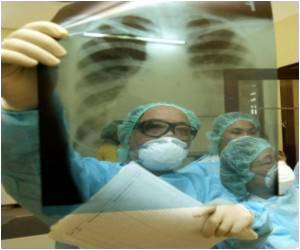Although chemotherapy is essential to prevent the cancer from reccuring after surgery, it is difficult to say which course of drugs will benefit which patient.

The patients' chemosensitivity to cisplatin, carboplatin, paclitaxel, docetaxel, gemcitabine and irinotecan were examined by the HDRA assay. The patients in the study were then split into two groups: (1) those whose tumors were sensitive to at least two of the HDRA drugs and received two HDRA positive drugs per chemotherapy session (31 patients) and (2) those whose tumors were sensitive to one or none of the HDRA drugs and were treated with a combination of one HDRA positive drug and one HDRA negative or two HDRA negative drugs per chemotherapy session (34 patients).
The overall five-year survival rate for the prediction sensitive group given two HDRA positive drugs was 82.4 percent. In contrast, the five-year survival rate for the patients whose tumors indicated a low sensitivity or no sensitivity to the HDRA drugs and received one HDRA positive drug and one HDRA negative or two HDRA negative drugs was 40.1 percent. Additionally, the rate of relapse was lower for the patients in the prediction sensitive group. Relapse occurred in 29 percent of patients who were given two HDRA positive drugs per chemotherapy session while it occurred in 55.8 percent of patients who underwent the other treatment.
"Our research concluded that the HDRA assay seems to be useful for the selection of anticancer drugs in chemotherapy," explained lead investigator, Masayuki Tanahashi, MD. However, Dr. Tanahashi and his colleagues recommend further research into this treatment option.
Source-Eurekalert














